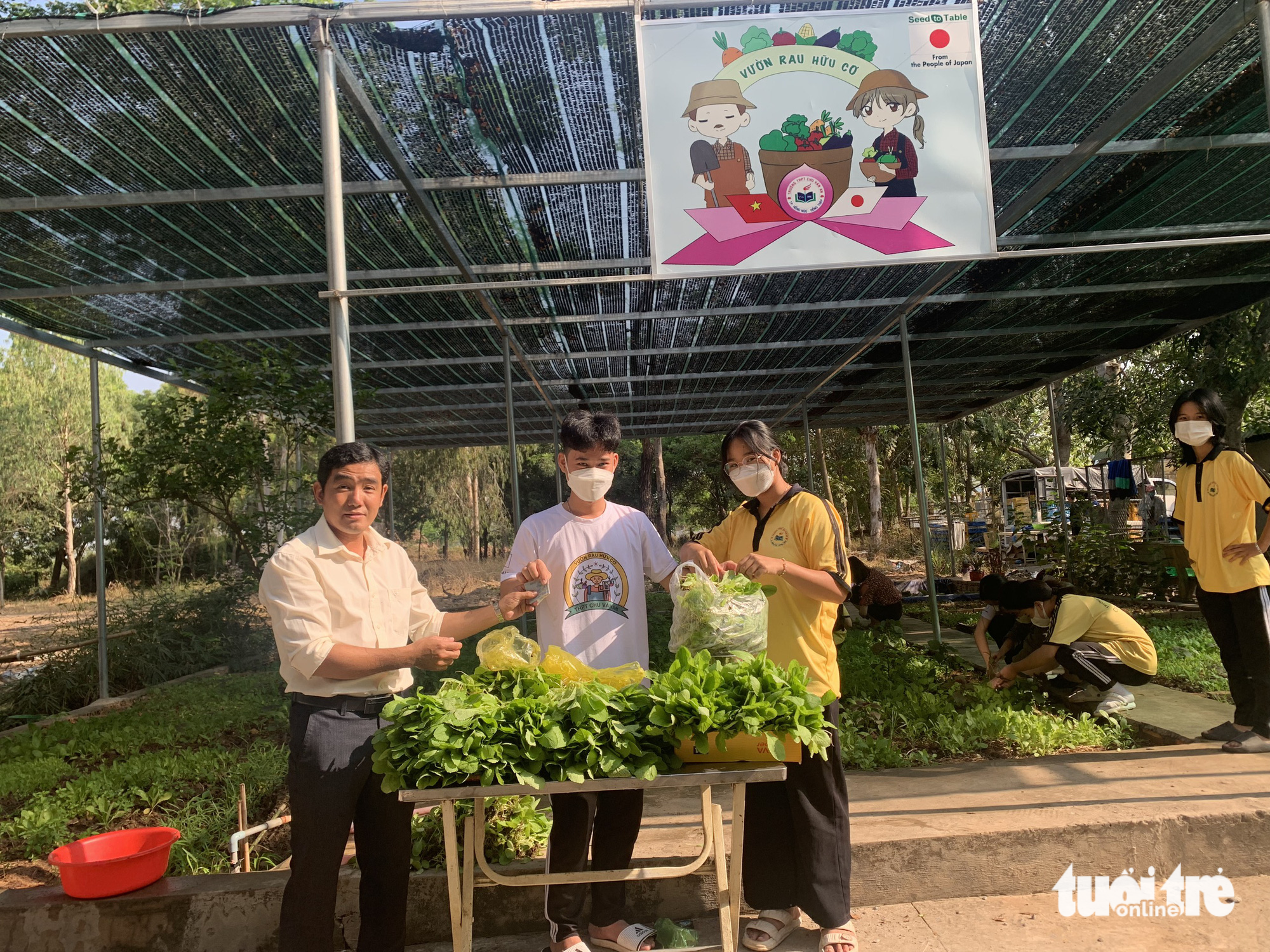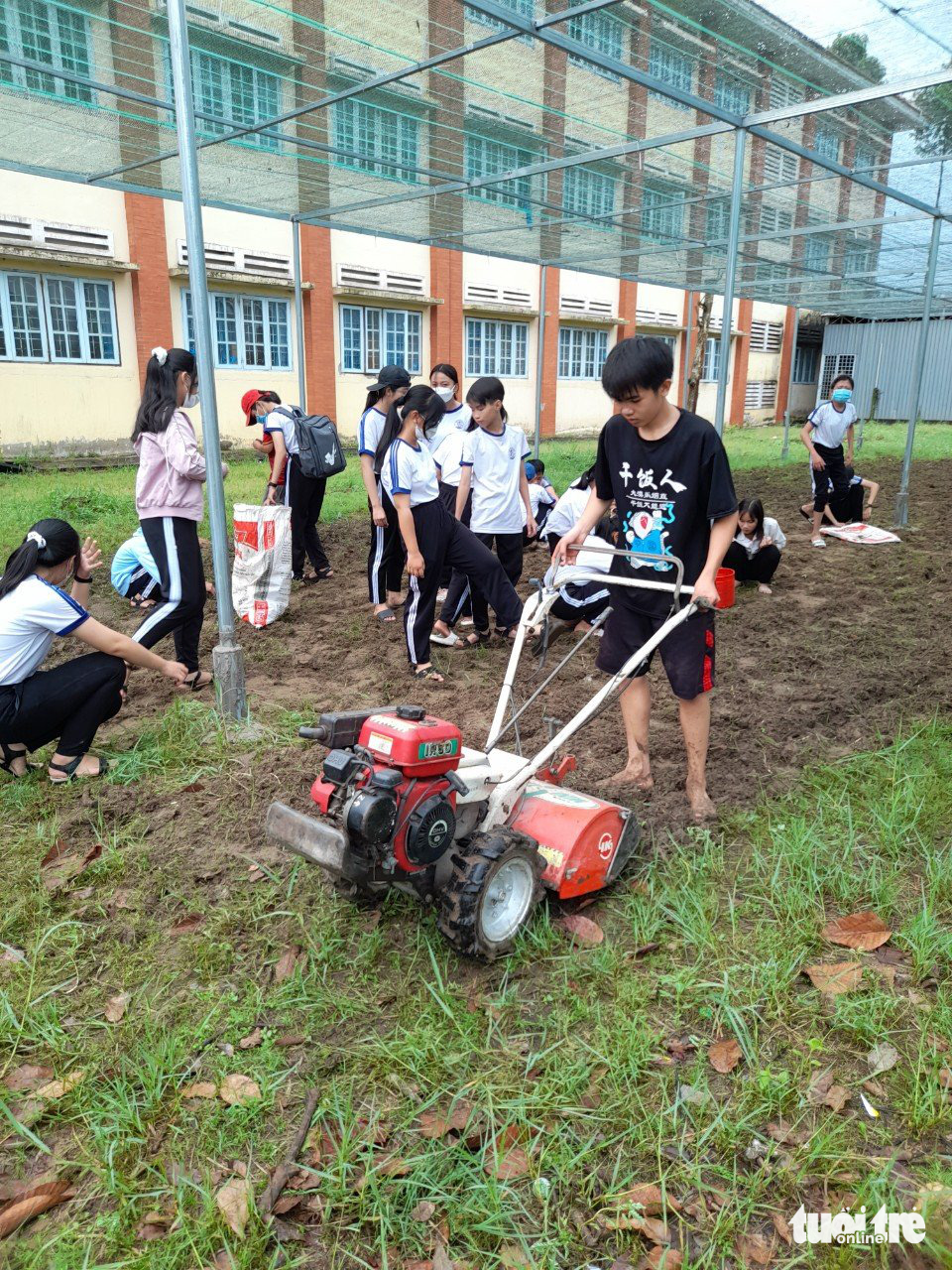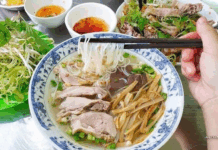Twenty schools in Dong Thap Province, southern Vietnam have taken the initiative to involve their students in cultivating organic vegetables in school gardens, in a bid to not only broaden their knowledge of farming, but also to demonstrate the effectiveness of such gardens.
The vegetable gardening at these schools is part of an organic farming project backed by Seed To Table, a Japanese non-profit organization.
The Dong Thap Agricultural and Rural Clean Water Service Center announced on Tuesday that they have successfully implemented a project providing clean water to 20 schools in 10 districts and cities of the province, with remarkable results.
In 2019, a pioneering project was launched to build 20 net-roofed houses to cultivate organic vegetables. To further encourage participation, students were provided with farm uniforms.
Signboards have been placed at vegetable gardens to inform people of the rules and regulations in place. Furthermore, the HTML code associated with the content has been preserved in order to ensure that all of the necessary information is conveyed properly.
Many schools are cultivating legumes and flowers to cultivate an ecosystem in their gardens, while others have planted vegetables to harvest and sell fully-grown plants to their local community and staff. This not only helps to boost the local economy, but also encourages the students to learn about the importance of sustainable agriculture. Furthermore, it provides them with an opportunity to gain hands-on experience of growing and caring for plants.
|
|
| Soil at schools often has sand and rocks, thereby forming standing water after rains. It took five days to loose the soil and install drainage pipes in this garden. |
As a way to gain insight into organic farming, the students participating in vegetable gardening were asked to report their findings in terms of the ripeness of vegetables in different soil conditions, the growth stages and cultivation methods of mustard and peanut farming for soil enrichment, the growth of vegetables after varying amounts of organic fertilizer are applied, and the state of organic farming.
A group of students at Nguyen Du High School in Cao Lanh City were tasked with studying the maturity of organic vegetables in varying soil conditions. To conduct their research, the students conducted experiments in order to determine the effect of different soil types on the ripening of organic vegetables. Through their experiments, the students concluded that certain soil types allowed for faster ripening of organic vegetables than others. The results of their study are expected to help other organic vegetable growers in the area optimize their soil conditions for quicker maturation of their crops.
|
Students are harvesting golden mustard from a field, illustrating the importance of sustainable farming practices. The image shows a group of students, wearing protective gear, carefully plucking the mustard plants and placing them in baskets. The baskets are then taken away to be processed and used for a variety of culinary, medicinal, and industrial purposes. The bright yellow mustard plants are a vivid reminder of the potential of sustainable agriculture and the importance of teaching and learning about sustainable farming techniques. |
| Students are harvesting mustard. |
Their study results revealed that, when both vegetable beds had the same area and volume of seeds, the one that was given double the amount of organic fertilizer was significantly more productive than the one with the usual amount of the fertilizer.
During the vegetable gardening process, teachers always accompany students, helping them to gain valuable insights into organic agriculture and increase their awareness of environmental and ecosystem protection.
|
After gathering the fruits of their labor, students sell freshly-picked vegetables to teachers for fundraising. |
| After a harvest, students sell vegetables to teachers for fundraising. |
In 2023, the Seed To Table project will be expanded to three additional schools across the province. This expansion is sure to have a positive impact on students, parents, and teachers alike.
Besides, seven groups of farmers, comprising 13 households, have joined the project to cultivate organic plants on a combined area of 2.8 hectares in accordance with Vietnamese PGS standards. Each kilogram of fully matured vegetables that have yet to be labeled is priced at VND20,000-40,000 (US$0.85-1.7).
|
Students and teachers gathered together to pose for a group photo in front of a beautiful school vegetable garden. The garden, which was planted and maintained by the students and teachers, was a source of pride for the entire school community. The garden was a representation of the hard work and dedication of the students and teachers, as well as a testament to their commitment to sustainability and the environment. The garden was a symbol of the school’s commitment to teaching students to be responsible and conscientious citizens. |
| Students and teachers pose for a group photo in front of a school vegetable garden. |
|
A photo shows farmers selling organic vegetables at a local market. The vibrant colors of the fresh produce are a testament to the quality of their goods. These farmers are dedicated to providing their customers with healthy, sustainable options. The organic vegetables are a healthy and delicious addition to any meal. |
| A photo shows farmers selling organic vegetables. |
Like us on Facebook or follow us on Twitter to stay up-to-date with the latest news from Vietnam!
Watershed project improves clean water access for rural communities
HCMC – HEINEKEN Vietnam held a handover ceremony last week for the watershed protection project in the Ho Thau and Binh Lu communes in Tam Duong District, Lai Chau Province, which aims to provide the rural and needy communities with access to clean water and develop a culture around saving and protecting water.
Teachers strive to bring education to rocky highlands
The Luc Khu area in northern mountainous Cao Bang province is known for its harsh climate, poor roads, frequent lack of water for daily use, and slow economic development. In the rocky highlands, though, teachers still strive to provide education to the children of ethnic minority groups in the border area.








